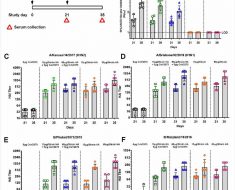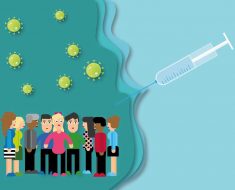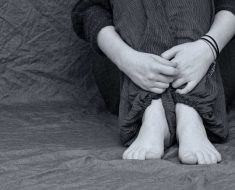- Women who give birth to few or lots of kids seem to age faster than those who have three or four, a study found.
- The findings support existing knowledge that pregnancy and childbirth have some physiological benefits, but only to a point.
- The study only found associations between accelerated biological aging and number of live births after menopause, suggesting the body protects against these consequences when it's still possible to reproduce.
- The findings could not prove a cause-and-effect relationship, and more research is needed to better understand the transition to menopause and women's reproductive health in general.
- Visit Insider's homepage for more stories.
Women who give birth to three or four children seem to hit the sweet spot when it comes to how their pregnancies and childbirths affect aging.
According to a November 25 study published in the journal Scientific Reports, delivering fewer or more children accelerates some aging processes after menopause, even when controlling for other factors like age and lifestyle.
This pattern is most pronounced at the extremes; that is, women who never have children and women who've had seven children, on average, age faster by some metrics than women who have one child or five.
The researchers, from Penn State University and Northwestern University, say they expected the findings, since pregnancy and childbirth are known to have some positive effects on the body, but after a point, the experiences can wear it down.
But while past research has linked how many children people give birth to, called parity, with mortality, their study helped fill in what may happen in between.
Other factors may be at play, helping to explain the similarities between people who've had few kids and those with many
For the study, the researchers looked at data collected between 1999 and 2010 from 4,418 participants in the Centers for Disease Control and Prevention's National Health and Nutrition Examination Survey.
They wanted to see if the number of live births a woman had, and whether or not she'd gone through menopause, had any relationship with various measures of biological aging, including assessments of metabolic health, kidney and liver function, anemia and red blood cell disorders, and immune function and inflammation.
They found a u-shaped curve between the number of live births and accelerated biological aging, but only in ways visible after menopause.
Waylon Hastings, one of the study authors and a postdoctoral researcher at Penn State, told Insider there are several potential explanations for why people who've had few or no children look similar in terms of these biological markers of aging as people who've had lots of kids.
It could be that women with underlying conditions, like hereditary diseases, may both be less likely to have children and more likely to experience accelerated aging. It's also possible that women with fewer or no children have less social support and higher stress than women with the resources to have three or four children, Hastings said.
Finally, he said, it could be that pregnancy and childbirth are beneficial to some systems and detrimental to others, but the data only captured the collective impact on four major systems.
"The relative impact on each system may vary with each pregnancy, resulting in a negative impact in the first few pregnancies followed by an overall positive impact across the next span of pregnancies that eventually becomes negative again as a larger number of pregnancies wear out the body's ability to adapt to the widespread metabolic changes associated with pregnancy," Hastings said.
"It is in line with the old adages 'too much of a good thing' or 'a little bit of stress is good for you.'"
The findings only appeared after menopause
When they looked at the same measures in pre-menopausal women, the authors didn't find any relationship between number of kids and accelerated aging.
That may be because while women are still fertile, their bodies protect against any potentially negative consequences of pregnancy and childbirth in order to support reproduction.
But once they're unable to reproduce, it seems that "whatever protective mechanisms are working to buffer the negative consequences of pregnancy and childbirth in premenopausal women are no longer functioning or have limited functioning in the years following menopause," Hastings said.
The research only painted a broad picture, but didn't prove a cause-and-effect relationship
The study should be interpreted with caution, since it could only make associations between number of kids and aging, but not prove any cause-and-effect relationships.
"I would want [moms] to understand that the patterns we show are averages across thousands of women, aren't necessarily representative of all women, and are likely to change across time and space," Hastings said, adding that the results only painted a broad picture but doesn't indicate how any one woman's body will be affected long-term by pregnancy and childbirth.
"At each number of live births there are some women who are doing very poorly, and there are some women who are doing exceptionally," he said.
More research is needed, Hastings said in press release, to better understand the transition to menopause and female reproductive health in general. "If we can see that there are these changes in aging as a function of reproduction and menopause, and we don't have a great explanation for why," he said, "then that's a sign we should investigate this more."
Source: Read Full Article





